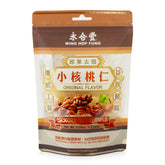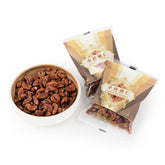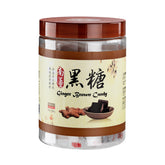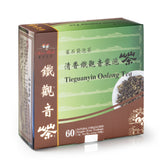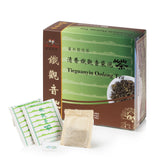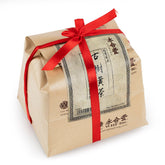Foods and Herbs as Medicines

Foods and Herbs as Medicines
Traditional Chinese medicine (TCM) texts date back to the Han Dynasty (206 BCE to 220 ACE). However, Chinese medicine was practiced long before the texts were discovered. One of the earliest works was the Wushi'er Bingfang (Chinese: 五十二病方 or Recipes for Fifty-Two Ailments that was discovered in Mawangdui in a tomb that was sealed in 168 BCE under the Han dynasty. That formulary presents more than 250 exorcistic, surgical and food or herbal-based cures for ailments ranging from warts to hemorrhoids or snake bites. Among medical treatments, the text describes channels (also called meridians) but mentions neither acupuncture nor moxibustion (cauterization with mugwort herb) were mentioned.
Chinese Medicine Constitutions
Using a TCM framework, a person’s balanced diet must consider the physical constitution which is a way to look at the body and energy type. In the Chinese diet there are six types of physical constitution: hot, cold, dry, damp, deficient and excessive. That means if we have hot physical constitution, we should eat more cooling foods; if a cold constitution, eat more warming pungent foods to create balanced energy. It is important to know our type of physical constitution.
Hot Constitution:
- Often feels hot, thirsty, reddish complexion, acne, nose bleed
- Prefers cold drinks and cold weather
- Has scanty dark urine, hard stools
- Red tongue with yellow coating
- Fast or high pulse
Cold Constitution:
- Feels cold and not thirsty
- Prefers hot drinks and foods
- Has pale or whitish complexion
- Has clear urine and soft stools
- Light colored tongue
Dry Constitution:
- Dry skin, itching
- Dry cough
- Constipation
- Thin frame, cannot easily gain weight
Damp Constitution:
- Heavy or clumsy feeling in the body
- Often tired
- Glossy, greasy coating on the tongue
- Edema or easy weight gain
Deficient Constitution:
- Weak body, low spirits
- Pale, easily tired
- Palpitations or shortness of breath
- Underweight often with prolapse symptoms
Excessive Constitution:
- Strong and energetic
- High spirits or drive
- Reddish complexion
- Hypertension, heart disease
- Loud or high-pitched voice
Combinations are always possible: hot and excessive, cold and dry etc. The individual’s diet is always a mixture of foods with different flavors and energies suited to the needs of that person. In general avoid highly processed, denatured and sweetened foods. Here is more specific advice:
Rules of Thumb:
- Hot physical constitution: eat more cool or cold energy foods; eat more bitter foods and less pungent foods. Add dark leafy greens, squash, fresh raw fruits and vegetables and fish, abalone (aka sea snails,) sea cucumber and tofu, steamed foods. Avoid sugar, hot spice, excess alcohol and smoking.
- Cold physical constitution: eat more hot or warm energy foods, fewer cold raw foods; eat more sweet and pungent foods and decrease bitter foods. Add ginger, pepper, cinnamon, clove, thyme, sage, meats, eggs, chicken, yam, tofu, longan, chicken, shrimp, soups, roasts and stews. Avoid iced drinks and excess raw or cold food.
- Dry physical constitution: eat foods that lubricate dryness like honey, tremella, goji berry, green vegetables such as okra and asparagus; oatmeal, bird’s nest, American ginseng, rehmannia, sea cucumber, peach tree tears; avoid drying (astringent) foods like adzuki beans. Stop smoking.
- Damp physical constitution: eat more drying foods that reduce fluids such as diuretic foods or drying foods such as Four Spirit Soup. Include digestive herbs in cooking such as lotus nuts, fox nuts (aka Seed/Qian Shi Euryale seed) atractylodes and ginger; avoid rich or fat foods that produce fluids such as dairy. Many Chinese digestive herbs, teas and pills such as Po Chai pills are useful for chronic indigestion.
- Deficient constitution; eat more tonics such as yam, soy foods, protein foods, jujube red date, red and white ginseng. Add tonic herbal formulas as needed with the advice of your herbalist. For example: “A Strong Back, Muscles and Bones (Zhuang Yao Jian Shen Herbal Tea.” Eat fewer bitter cleansing or cold foods that lack nutrition.
- Excessive constitution: choose more foods that promote blood circulation and reduce inflammatory symptoms such as Luo Bu Ma tea, avoid foods that strongly increase energy (stimulants) such as coffee and red ginseng. Enjoy delicious chrysanthemum flower tea.
Chemistry and Tradition
In the West we may eat beef for phosphorus, seaweed for iodine, banana for potassium, rice for carbohydrate, spinach for iron, tomato for vitamin A, or lemon for vitamin C. But in Asian medicine we eat foods according to their effects on our health and energy. For example, according to TCM, beef is neutral in energy, sweet in flavor and acts on spleen and stomach. Chicken liver is slightly warming, sweet in flavor and acts on liver and kidneys. Seaweed is cold and salty in flavor. Sweet rice is warm in energy, sweet in flavor and acts on spleen, stomach and lungs.
Your Diet According to Your Constitution/Condition
Cooking according to our constitution and a food’s energy may seem complicated, but it is easier than cooking purely to achieve proper food chemistry. We cannot taste potassium, sodium, or chloride though every cell needs them. We might memorize food sources or analyze the food’s chemical composition, its energetic interaction with body systems. Most of us simply rely upon tradition: “Gramma’s favorite cure for preventing headaches.” But we can accomplish something more specific, more like food as medicine.
Since we as individuals have different needs and tastes, and the same food will react in us according to our constitution (our genetic heritage) and our condition (what we feel now) an energetic approach is easiest to use in the kitchen. It will be a truer guide for your diet than nutritional mega-studies, seasonal choices or food fads. After all, if you are weak and blood deficient you may feel cold chills during summer heat. You may feel feverish or have menopausal hot flashes during winter.
Many adults who live under stress develop obesity, hypertension, diabetes, heart disease. They benefit from using cleansing foods. Dr. Henry C. Lu in his book Chinese System of Food Cures recommends these foods to “ soften blood vessels” help prevent hardening of arteries (arteriosclerosis) and stroke: kelp, mung bean sprouts, fruits; reduce animal fats, and add foods that reduce blood pressure such as celery, hawthorn, banana and persimmon. Online sources that list TCM heating and cooling foods can be found. Here is one: https://www.benefits-of-honey.com/heaty.html
Luo Bu Ma: A bush tea for longevity
The Chinese invented one of the earth’s greatest healing treasures: Tea. How do older Chinese people protect their heart and ease anxiety? They drink Luo Bu Ma tea, a bush used to promote longevity. The herb grows within the vast pollution-free Taklamakan Desert along the ancient silk Road in china's remote xinjiang Uigur Autonomous Region. The leaves and flowers are picked fresh, then roasted slowly to perfect the tea's favor. The warm brewed tea is mild and tastes similar to linden and makes a lovely, calming afternoon or evening beverage.
Gynostemma and green tea are both excellent teas for health and are an acquired taste. May people enjoy the brisk bitter taste and slightly sweet aftertaste of green teas and there are many with varying intensity from the light colored flat-leaf green lungjing picked in early spring to the stimulating cannonball rolled gunpowder green tea. And there are jasmine and flavored teas that use green tea as their base. Winter’s cold weather or after a rich meal are good times to enjoy Pu’er tea, a fermented digestive tea with a distinctive earthy flavor. But there is a Chinese herb that is enjoyed for its mild taste, simple pleasurable aroma and calming effects: Luo Bu Ma. It is a bush also called Chinese Dogbane and Apocynum leaf (Apocynum venetum, Herba Apocyni Veneti of the family Apocynaceae). It is brewed as a tea or added to soups.
Chemical Effects
Luo bu ma contains nitric oxide which helps to keep blood vessels open so that qi may easily move throughout the body. Nitric oxide is the main ingredient in Viagra. It also is used for improving asthma by opening chest circulation. Luo bu ma, according to research, acts upon the aorta like an ACE inhibitor drug often recommended by cardiologists for prevention of heart disease.
Aging is related to free radical reactions. Apocynum venetum tea has obvious anti-oxidation effects, and can reduce cataract formation. The plant extracts, with composition of inositol, folic acid, pantothenic acid, aromatic substances and other compounds in the tea, can regulate fat metabolism.
Clears “inner fire” and calms the liver, anti-arrhythmia
Apocynum venetum contains a variety of bio-active components, which regulates various links of immune system to some extent, to protect the liver detoxification. It obviously regulates immunity, as well as being anti-allergy, anti-viral.
Luo Bu Ma for the Heart
Apocynum venetum Luo Bu Ma tea contains flavonoids, by scavenging reactive oxygen free radicals, plays an anti-arrhythmia, anti-myocardial ischemia role, alleviates angina, improve cardiac function. It also helps to improve the cerebral ischemia, and to improve oxygen supply capacity of the brain and. Thus it has a certain effects in recovery of heart, vessel disease and paralysis, dementia.
Luo bu ma is a diuretic, another treatment often given to heart patients in order to reduce water retention and ease pressure on the heart. Chinese people drink the tea daily to reduce high blood pressure.
Luo Bu Ma is a traditional Chinese medicine. Beyond the cardiovascular benefits, it has traditionally been touted to promote longevity and treat both nephritis and neurasthenia. but more recently is associated with claims of blood pressure reduction and sedation (which opposes the stimulatory effect of green tea from camellia sinensis due to green tea’s caffeine content.
Quercetin
Quercetin as the main active constituent of Apocynum, has significant diuretic effect. Quercetin, a potent antioxidant, is the most abundant dietary flavonoid. Quercetin is abundance in apples, honey, raspberries, onions, red grapes, cherries, citrus fruits, and green leafy vegetables. Among vegetables and fruits, quercetin content is highest in onions. Quercetin has been linked to improved exercise performance and reduced inflammation, blood pressure, and blood sugar levels. Plus, it may have brain-protective, anti-allergy, and anticancer properties.
Apocynum venetum tea contains large amount of magnesium, up to 930 mg per hectogram. Magnesium has a direct relation with pancreatic insulin secretion, for insulin is released by stimulation of cholecystokinin to the pancreas, while the cholecystokinin is activated by magnesium. Apocynum venetum tea has an adjuvant effect in diabetes treatment.
TCM Herbal Description
According to traditional Chinese medicine, Luo Bu Ma’s nature is sweet, bitter, and cooling (reduces inflammation)
Enters: Liver and liver meridian
Actions: Calms the liver and subdues yang; clears heat and promotes urination; nourishes the heart and quiets the spirit. Lowers blood pressure.
Indications:
• Liver yang rising: dizziness, hypertension, flushed complexion, irritability, insomnia, agitation or restlessness, headache, blurry vision etc.
• Consumed by older and stressed people in China as a general health tonic to prevent the problems of aging.
https://chineseherbinfo.com/luo-bu-ma-apocynum-leaf-dogbane/
Research shows that Luo Bu Ma regulates blood lipids and pressure,
improves blood viscosity, softens blood vessels, and clears toxins. With target organ protective effects, it revitalizes the heart, brain, liver, and kidney, preventing cardiovascular complications, helping to improve overall body functions. The tea has rapid absorption without any impact on normal eating. “Perennial regular tea drinking, gives you a steady blood pressure, which is a healthy habit instead of a lifetime taking medicine.”
Research
Luo Bu Ma has been conducted in China, Korea, Japan, and several Western countries. This research shows that this medicinal definitely lowers blood pressure (by increasing nitric oxide and thus vasodilation) and has diuretic, cardiotonic, and antioxidant activity. Other research indicates that Luo Bu Ma has antidepressant potential and can reduce anxiety (in mice, equal to benzodiazapines). Yet other research shows that this medicinal is effective for hypercholesteremia and the prevention of atherosclerosis. A water infusion of this herb has been shown to be hepatoproctective in mice. As if that weren’t enough, Luo Bu Ma can reduce the formation of advanced glycation endproducts which are largely involved in the pathogenesis of diabetic vascular complications. Chinese research suggests that the active ingredients in Luo Bu Ma mainly consist of rutin, d-catechin, and quercetin. However, Japanese research shows that Luo Bu Ma contains more than 15 kinds of phenolic constituents.
Common Use
Luo Bu Ma was, up until recently, a folk medicinal mostly found and drunk as a healthy beverage tea in Inner Mongolia. However, recently, this medicinal has been found to lower blood pressure, lower bad cholesterol at the same time as raising high density (good) cholesterol, reduce edema due either to kidney or heart dysfunction, enhance immunity, and promote longevity. Therefore, this herb is now often drunk both preventively and remedially by the middle-aged and elderly in China and Japan.

